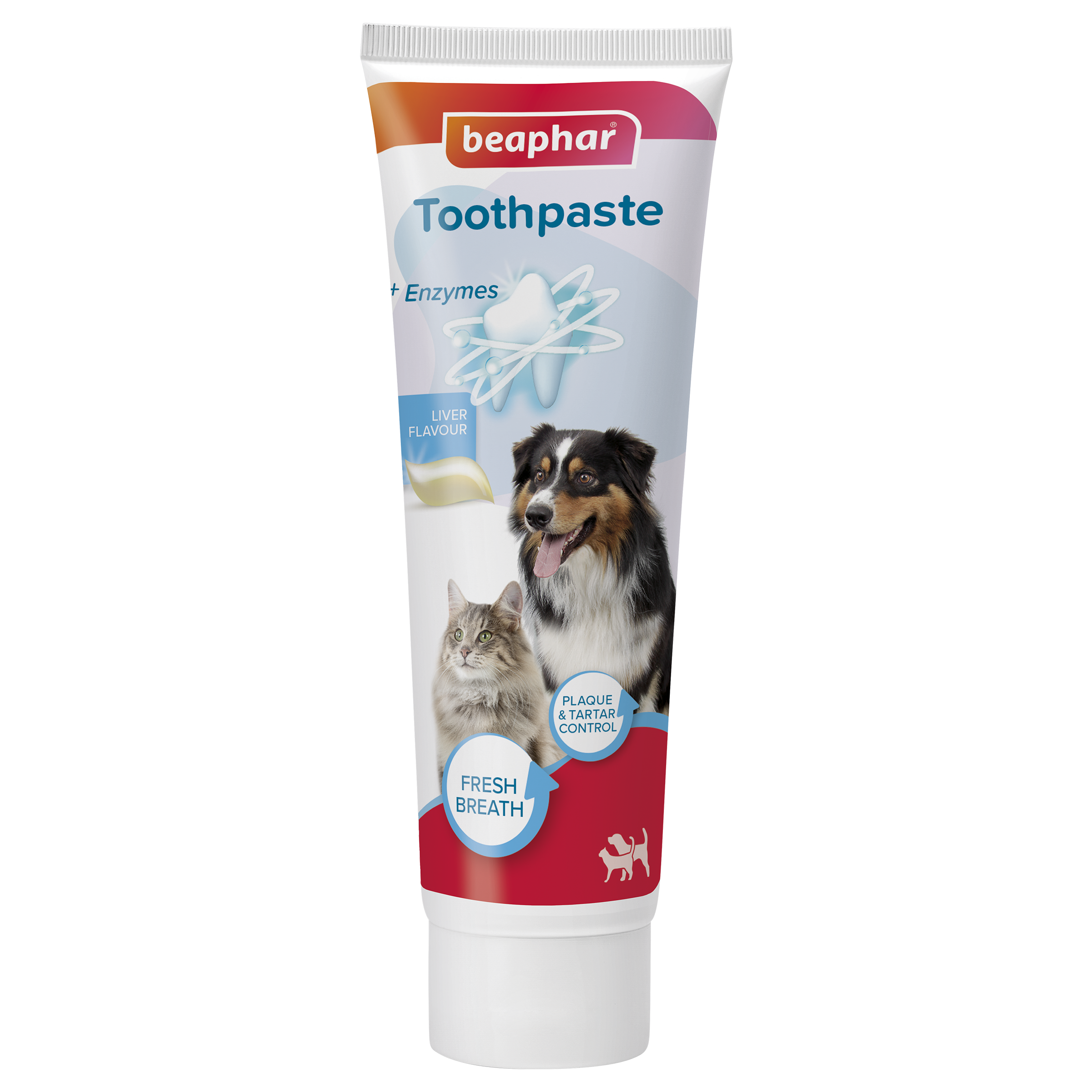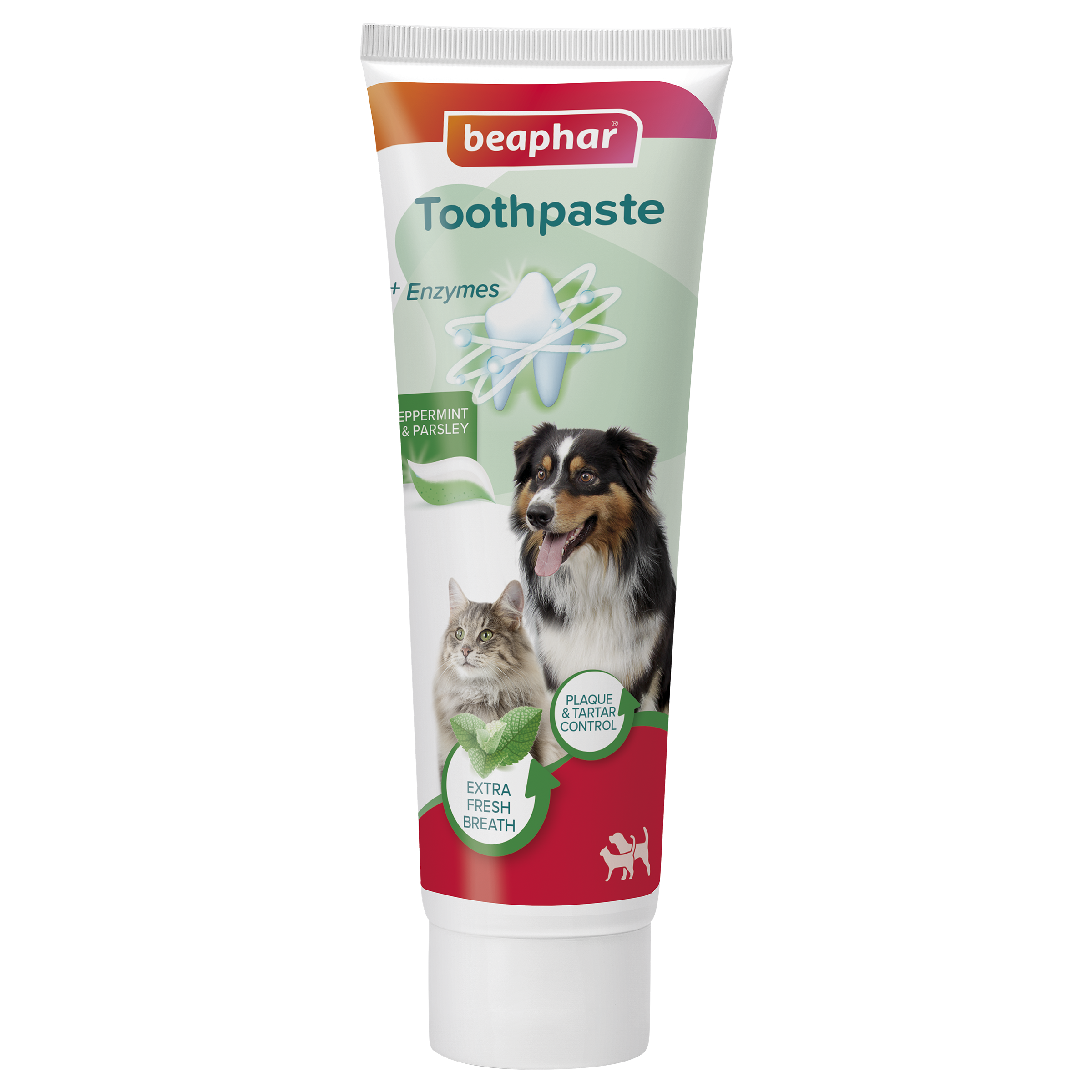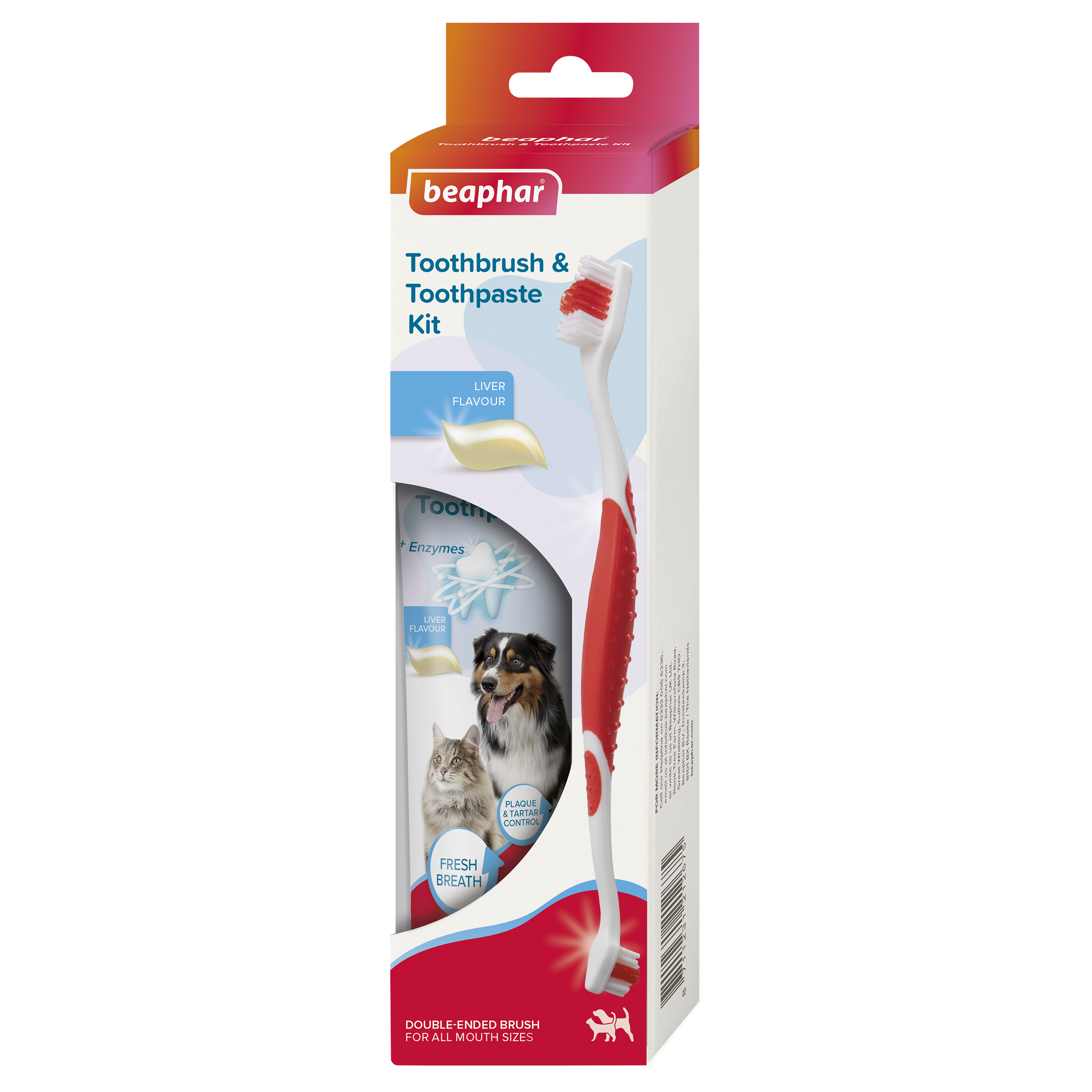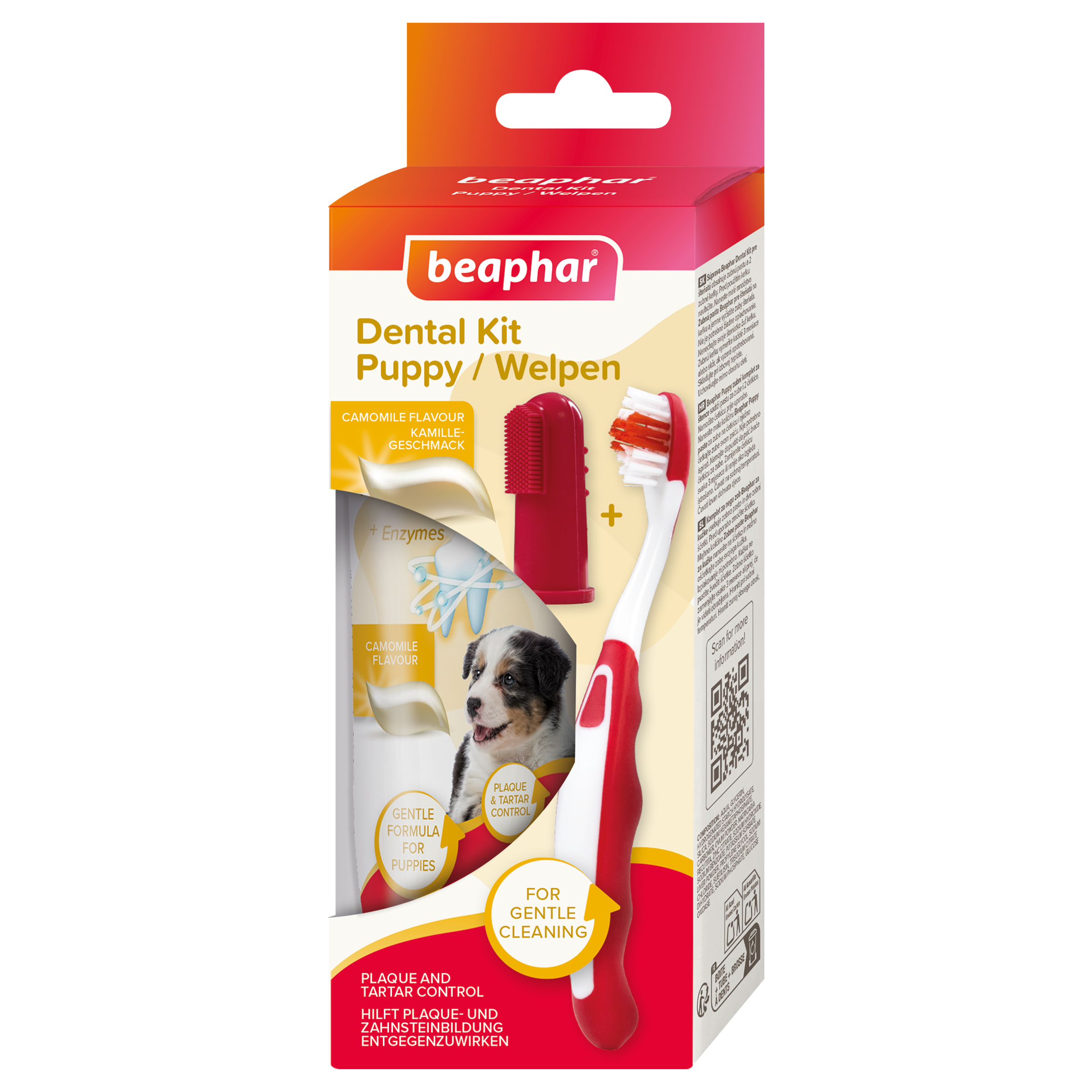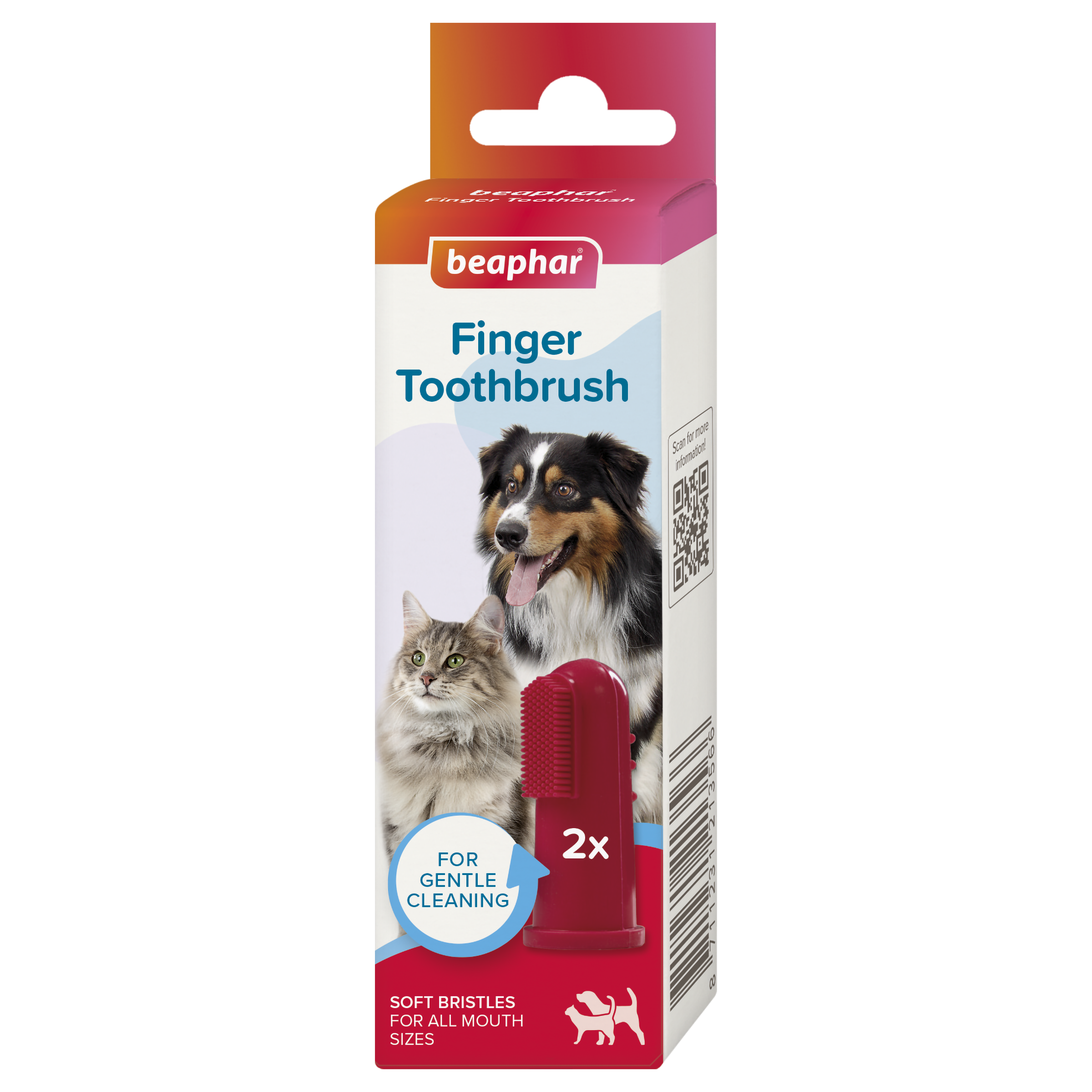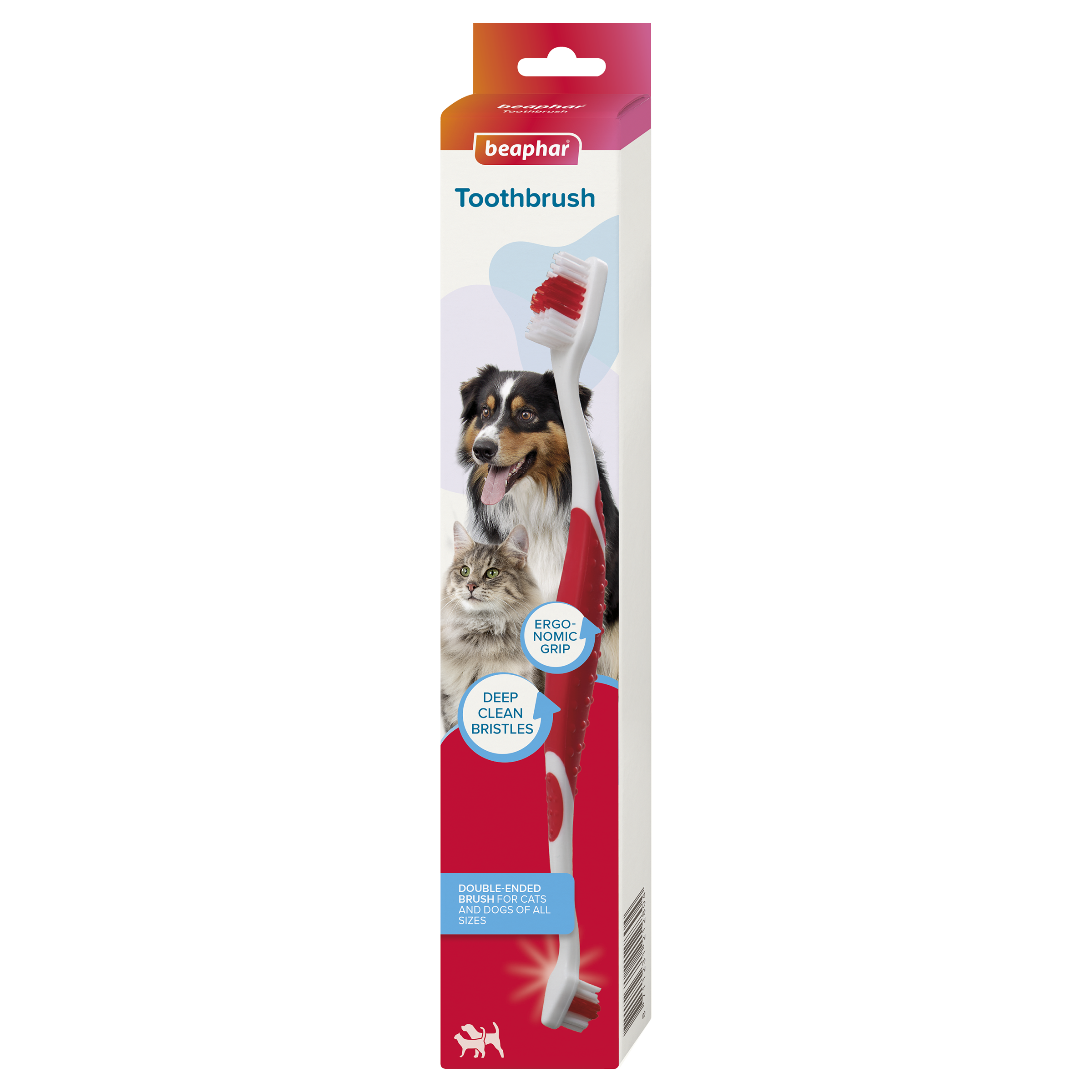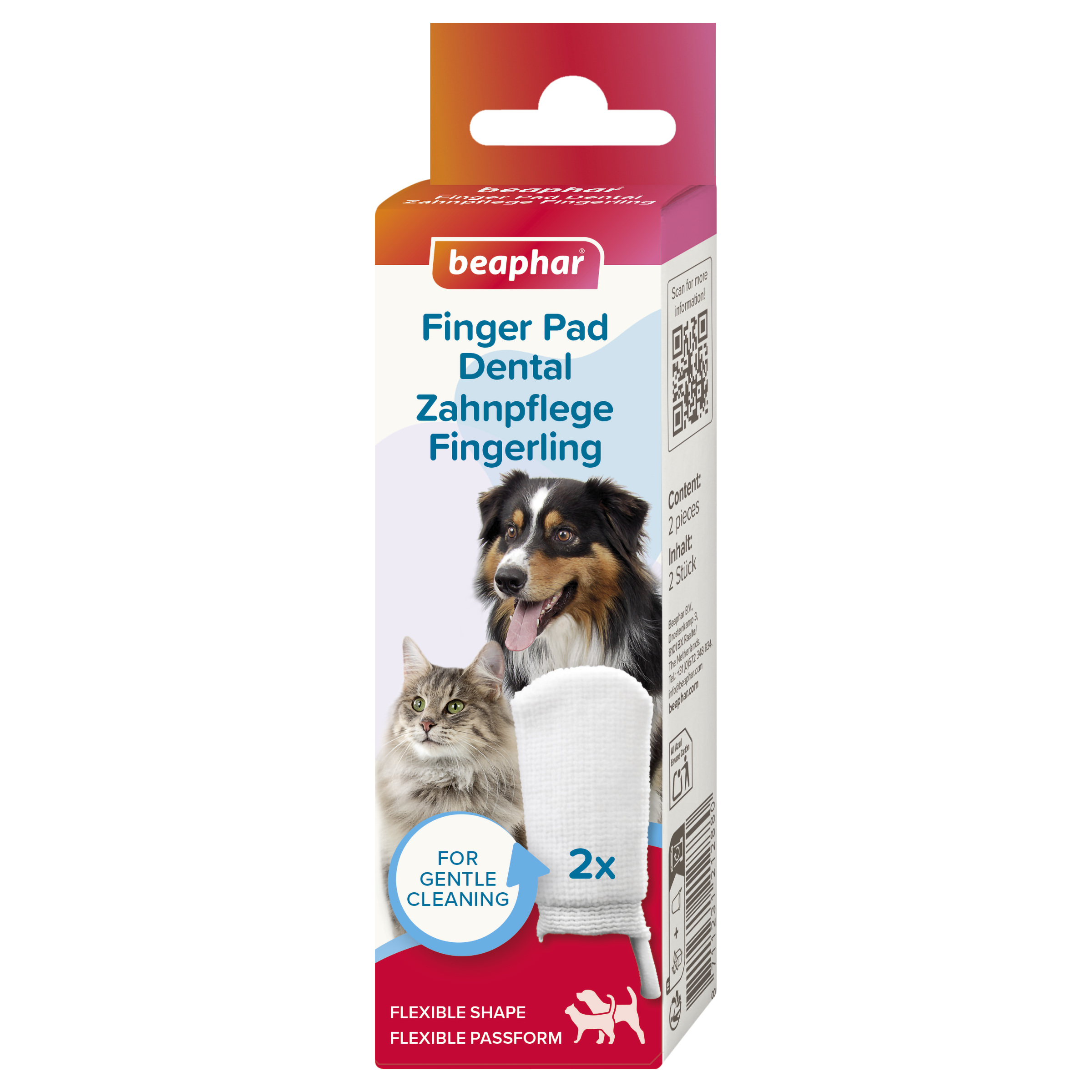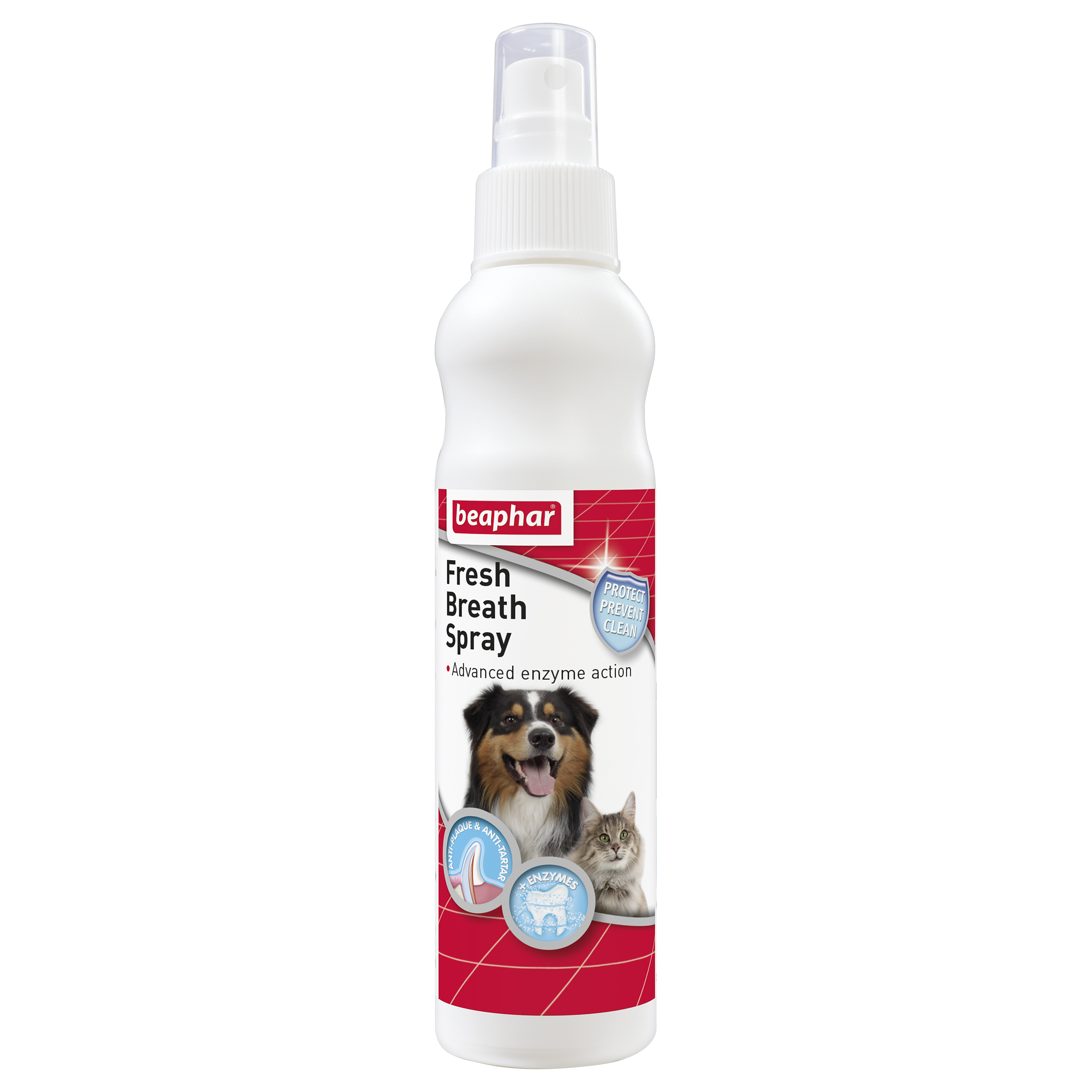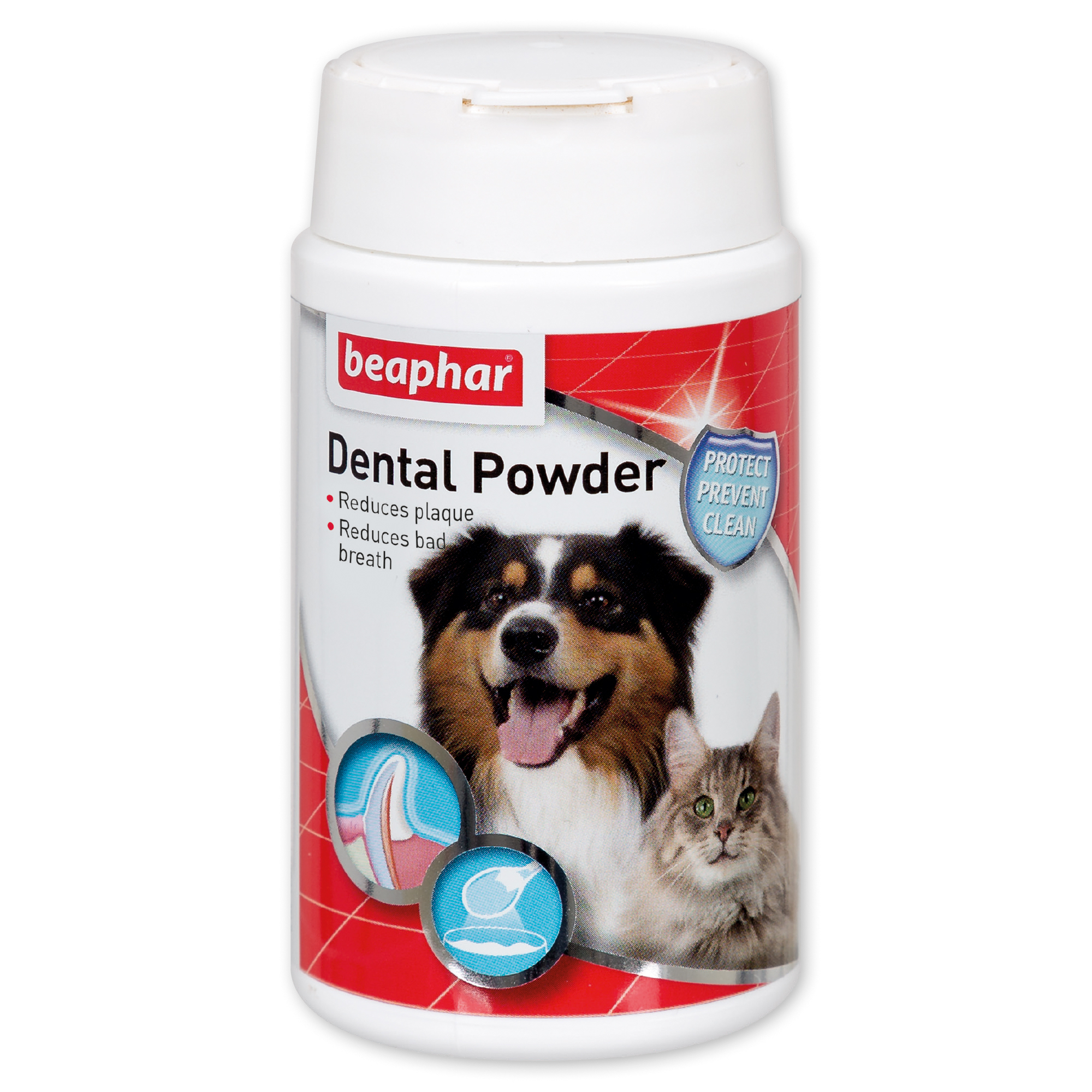Dental care for dogs and cats
Taking care of the teeth of dogs and cats is just as important as taking care of your own teeth. Just like humans, dogs and cats can suffer from bad breath or dental problems. Dental problems in dogs and cats have many causes; type of food, genetics, snacks, etc. Regular dental care prevents problems and expensive veterinary interventions.

Brushing remains the best method of dental care for dogs and cats. This can often be learned with consequent training. If brushing doesn't work for your pet, there are all kinds of other ways to take extra care of your dog or cat's dental health.
Beaphar provides a wide range of dental care products. These products contain enzymes that fight bacteria, break down plaque and bind calcium, which prevents the formation of tartar, even if you don't brush.
Dental check for dog and cat
If you do not take care of your pets teeth, your dog or cat can suffer from plaque, tartar, cavities, inflammation and even health problems in other parts of the body. It is wise to regularly check the teeth of your pet and to take action when issues are encountered.

Healthy teeth
A healthy dog or cat's teeth contain no deposits and have white teeth and pink gums. The gums have good blood circulation and look healthy.
Dental plaque
If there is a yellowish deposit on the teeth and the gums are irritated and red, your dog or cat clearly has plaque. Dental plaque is a common condition. It is a fairly soft layer made up of bacteria, calcium and phosphorus. This layer is formed from saliva, food remains and water. Plaque is mainly present along the gums, but can also occur in other places. Individual predisposition, age and skull shape determine the formation of dental plaque. Plaque can be removed by careful brushing.
Tartar
If there are brown deposits on the teeth of your dog or cat and the gums have poor circulation (they look pale), we advise you to contact your vet. Your animal then perhaps has tartar. Tartar forms when plaque calcifies. Wherever there is plaque, tartar can form. Tartar can no longer be brushed away and will have to be removed under anesthesia at the vet. These kind of dental procedures can be very expensive.
Other consequences of dental plaque
Dental plaque can also cause caries (cavities), gingivitis (gum inflammation), periodontitis (gum inflammation in which the bone is damaged), inflammation of the buccal mucosa, growths in the mouth and/or tumors. The bacteria that cause these inflammations can also cause problems in other parts of the body if they are ingested. Reason enough to take good care of your pets teeth!
Discover below the extensive Beaphar Dental range, offering an array of options of pet dental care.




